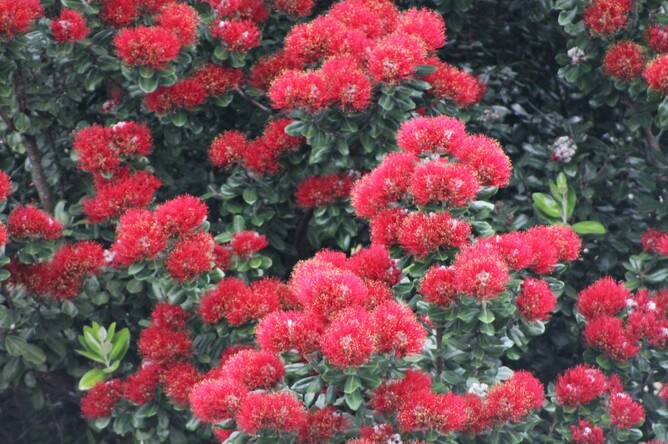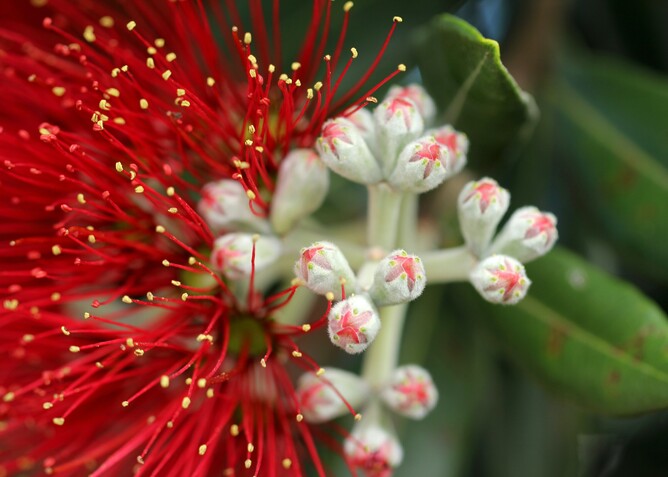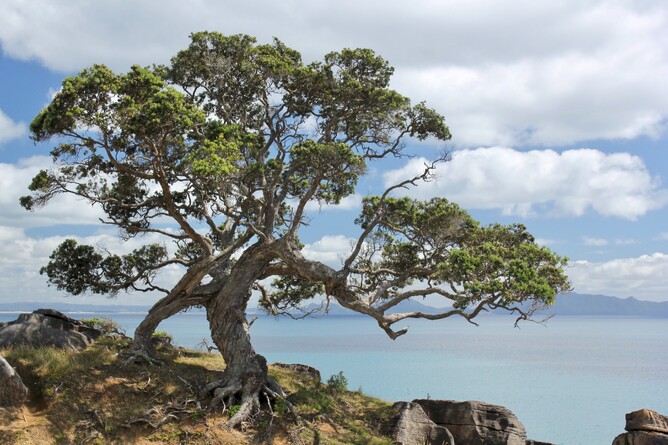When the holiday season approaches in New Zealand, you won't find snow-covered landscapes or evergreen pines adorned with ornaments.
Instead, you'll find the unique and special Pohutukawa tree, often called the "New Zealand Christmas tree."
The Pohutukawa holds a special place in the hearts of New Zealanders, and its significance goes far beyond its striking crimson blossoms.
Christmas
Pohutukawa trees are known as the "New Zealand Christmas Tree" for a good reason.
They burst into bloom with vibrant red flowers during New Zealand’s summer months, aligning perfectly with the Christmas season. The bright red flowers have become a special part of New Zealand’s Christmas traditions.
Māori
In Māori culture, the Pohutukawa tree holds spiritual significance.
It is associated with the arrival of the Māori people in New Zealand and features prominently in Māori legends. One of these legends is about Tawhaki, a young warrior who tried to find heaven to seek help in avenging his father's death.
During his journey, he fell back to earth. It is believed that the bright crimson of the Pohutukawa flowers represents his blood, adding another layer of significance to these special trees.
Survivors by the Sea
Pohutukawa trees are coastal survivors, known for their strength and unique adaptations, playing a crucial role in New Zealand's coastal ecosystems.
These hardy trees are well adapted to the challenging coastal conditions, where they stand as true coastal guardians for centuries.
Their extensive root systems help stabilize sand dunes and prevent erosion all while weathering harsh environments where there are strong winds, salt in the air, and dry soil.
Pohutukawa have aerial roots with remarkable functions that help them and others thrive in coastal environments:
Water Absorption: These roots capture moisture from the air, especially during dry periods when water is scarce in rocky coastal soil.
Stability: They provide extra anchoring, helping the tree withstand strong coastal winds and remain upright.
Habitat for Others: Their bark and aerial roots create a perfect surface for other plants like epiphytes, which can store water and benefit the Pohutukawa.


